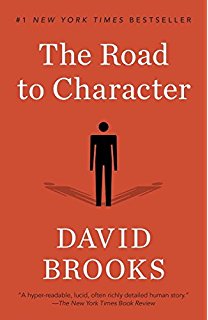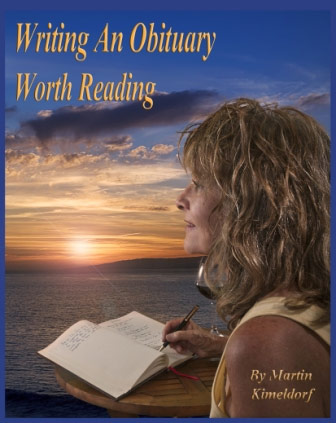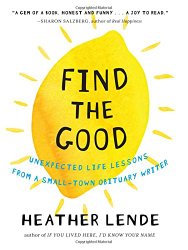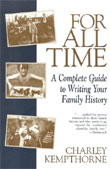From the Résumé to the Eulogy:
Describing Ourselves
October 18, 2022 (updated)
David McConkey
How do we describe ourselves? Turns out there are several ways, and looking at the list can help us understand ourselves better. We can see how we can make a more complete record of our past, reflect more fully on our present, and help chart a better course for the future.With definitions adapted from dictionary.com, here are some ways we use to describe ourselves:
Résumé – a brief written account of personal, educational and professional qualifications and experience; as in a job application.
Diary / Journal – a daily record of experiences, observations, and feelings. Usually private. Both words come to us from words relating to “day” or “daily.” Recommendation: if you keep one, decide what you want done with it after you die, and leave clear instructions.
Life Story – a short, informal summary of one person's life. (See: Write a Life Story.)
Memoir / Autobiography – a self-written history of one person’s life. (See: Memoir Writing: Ten Tips.)
Family History – an account of the lives of a family group. (See: A Family History Writing Workshop.)
Legacy Letter – a message to the next generation. Also called an ethical will. Although an ethical will is usually written for family members, whereas a legacy letter could be directed to any person, group or organization. (See: Write Legacy Letter to Express Values, Lessons Learned in Life.)
One Story – one 500 to 1,000 word piece that sums up your life and legacy. (See: Having the Last Say: Capturing Your Legacy in One Small Story.)
Obituary – a written notice (for example, in a newspaper) of a person's death, often with a description of their life and work. (See: Writing Your Own Obituary Offers Chance for Reflection.)
Eulogy – a laudatory speech or written tribute, especially praising someone who has died. Usually spoken. Note: this is the only one always composed – or, at least, always delivered – by someone else! (See: Write and Give a Eulogy.)
New York Times columnist and author David Brooks has an interesting take on the difference between what he calls the “résumé virtues” and the “eulogy virtues.” He has elaborated on this difference in his column in the Times, his book The Road to Character, and in his Ted Talk: Should You Live for Your Résumé or Your Eulogy?
 The résumé virtues are
the ones we put forward in the work world, as we apply for employment
and generally promote ourselves in society. The eulogy virtues are how
others think of us, and relate to what kind of person we are.
The résumé virtues are
the ones we put forward in the work world, as we apply for employment
and generally promote ourselves in society. The eulogy virtues are how
others think of us, and relate to what kind of person we are. “It occurred to me that there were two sets of virtues, the résumé virtues and the eulogy virtues,” Brooks writes in his column. “The résumé virtues are the skills you bring to the marketplace. The eulogy virtues are the ones that are talked about at your funeral – whether you were kind, brave, honest or faithful.”
We spend our lives, Brooks notes, building up our résumé virtues. But really, we should be contemplating our eulogy virtues, which are more important in the larger picture. While we concentrate on the résumé virtues, others will take stock of the impact of our life – what they really thought of us – when they compose a eulogy.
We develop our résumé virtues, Brooks says in his TED Talk, by building on our strengths. In contrast, he says, we develop our eulogy virtues by fighting our weaknesses.
Arianna Huffington makes much the same point in her book Thrive: The Third Metric to Redefining Success and Creating a Life of Well-Being, Wisdom, and Wonder. She describes the first two metrics of life as being the traditional goals of money and accomplishment. The third metric has four elements: well-being, wisdom, wonder, and giving. In effect, Huffington's first two metrics are what Brooks calls the “résumé virtues” and her third metric is what Brooks calls the “eulogy virtues.”
Describe ourselves? Understand ourselves? Become better people? Let us count the ways.
As a bonus, here is one more way:
Six Words – how about summing up your life in just six words? Many have found this exercise to be a lot of fun, and illuminating, too. (See: Six Words To Describe A Life?)
* *
*
See Also:
The Changing Conversations About Mortality
The Road to Character on Amazon.com (on
Amazon.ca
(on
Amazon.ca )
)
Should You Live for Your Résumé or Your Eulogy? TED Talk
The Moral Bucket List, The New York Times
On Becoming a Better Person, Sam Harris Podcast
Writing an Obituary Worth Reading
Having the Last Say: Capturing Your Legacy in One Small Story
Live Well, Do Good
Other Reviews
The Changing Conversations About Mortality
The Road to Character on Amazon.com
Should You Live for Your Résumé or Your Eulogy? TED Talk
The Moral Bucket List, The New York Times
On Becoming a Better Person, Sam Harris Podcast
Writing an Obituary Worth Reading
Having the Last Say: Capturing Your Legacy in One Small Story
Live Well, Do Good
Other Reviews
More From Obituary Guide:
- Writing Your Own Obituary Offers Chance for Reflection
- How to Write a Legacy Letter (Ethical Will)
- A Family History Writing Workshop
- Helping Families "Most Satisfying Work" for Funeral Celebrant
- Be Prepared: Will, Health Care Directive (Living Will), and More
Books You May Find of Interest:
Not Quite What I Was Planning:
Six-Word Memoirs

Writing an Obituary Worth Reading:
A Guide to Writing a Fulfilling Life Review

Find the Good:
Unexpected Life lessons From a Small-Town
Obituary Writer

Having the Last Say:
Capturing Your Legacy in One Small Story

Obit:
Inspiring Stories of Ordinary People Who Led Extraordinary Lives
For All Time:
A Complete Guide to Writing Your Family History

Thrive:
The Third Metric to Redefining Success and Creating a Life of
Well-Being, Wisdom, and Wonder

Press Ctrl + D to Bookmark this page

